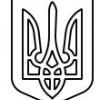A short chronicle From the First Memory of things in Europe to the Conquest of Persia by Alexander the great By Sir Isaac Newton
-
Последна активност
-
- 5136 мнения
- 267266 прегледa
-
Светът иска да регулира изкуствения интелект, но не знае как 1 2 3 4 7
От Р. Теодосиев, in Изкуствен Интелект
- 167 мнения
- 10796 прегледa
-
- 139 мнения
- 6743 прегледa
-
Месояден хищник или тревопасен е по природа човекът, или епизод от научната дезинформация в новия свят 1 2 3 4 53
От КГ125, in Съвременна и обща проблематика
- 1310 мнения
- 88773 прегледa
-
- 2179 мнения
- 181615 прегледa
-
-
Последно разглеждащи 0 Потребители
- No registered users viewing this page.



Препръчано мнение
Напиши мнение
Може да публикувате сега и да се регистрирате по-късно. Ако вече имате акаунт, влезте от ТУК , за да публикувате.